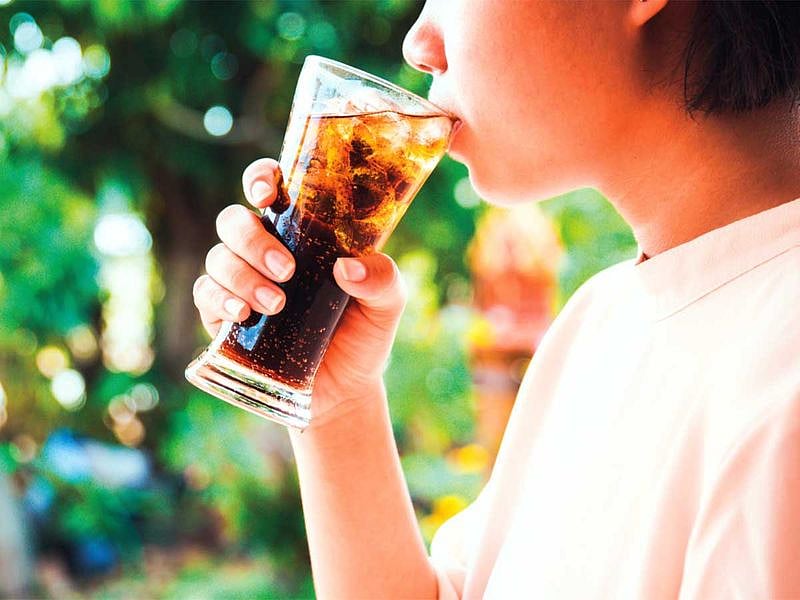Cheaper low-sugar drinks in UAE from 2026 as new tax model kicks in
New UAE sugar tax links rates to sugar content, reshaping prices and choices for residents

Dubai: When you walk down a UAE supermarket aisle in 2026, the price of your favourite soft drink won’t just depend on the brand — it will depend on the sugar inside.
After the Ministry of Finance and Federal Tax Authority (FTA) confirmed that from early 2026 the flat 50% excise tax on sweetened beverages will be replaced with a “graded volumetric model,” UAE beverage companies have been rushing to adapt to the new system.
How the new approach changes residents’ and businesses’ experience of the excise tax is by linking it to each drink’s sugar content. Beverages with higher sugar per 100 ml will be taxed more, while lower-sugar drinks will be taxed less, resulting in lower prices for consumers.
For residents, this is a significant change: beverages that previously cost the same, whether full-sugar or sugar-free, will now fall into different price brackets, giving shoppers a clearer financial reason to choose healthier options.
Win for all
UAE-based manufacturers, including United Foods Company, told Al-Emarat Al-Youm they had long pressed for this change, arguing that linking tax to sugar content makes more sense than taxing all products equally.
Beverage makers are already preparing new recipes, with juices in particular expected to be reformulated in ways that protect margins while offering healthier options.
With sugar making up a significant share of production costs, lowering sugar not only makes drinks healthier but also cuts expenses. That means companies are in a position to pass some of the savings on to shoppers.
Brands retool
The new UAE model is also driving multinational beverage makers to accelerate reformulation. PepsiCo is reshaping its GCC portfolio so that about two-thirds of sales come from beverages with 100 calories or less from added sugars per serving, according to the UAE Arabic daily.
For UAE shoppers, this shift will translate into more “light,” “zero,” and “low sugar” choices on store shelves. It’s not only about avoiding higher taxes — it reflects broader demand for healthier lifestyles.
Shopping changes
So, what does this mean when you go grocery shopping in 2026?
Regular sodas and energy drinks: Likely to get more expensive, since these are typically high in sugar.
Juices with less sugar: Prices will likely drop under the new system, making them more attractive for families.
Zero-sugar and diet sodas: Could become the cheapest option in the fizzy drinks category.
Industry executives have reiterated off late how sugar content reduces prices and stimulates demand for healthier drinks, while also cutting production costs.
For consumers, that means better value at checkout and a financial nudge toward healthier choices. For households that buy large volumes of juice or soda each week, even small price differences will quickly add up.
Global shift
The UAE is not alone. At least 117 countries now have some form of sugar tax, according to the World Bank’s Global Sugar-Sweetened Beverage Tax Database.
The UK introduced a similar tiered model in 2018. Within two years, soft drink makers there cut sugar by nearly 40%, while consumers did not pay more overall — instead, they switched to healthier alternatives.
Indonesia, Kazakhstan, and Barbados are among other countries making similar moves in 2025–26. The UAE’s step puts it firmly in line with this global health policy wave.
What's next?
As the Ministry of Finance and FTA first announced the change in July 2025, it gave companies a long runway to prepare. Businesses now have until early 2026 to:
Reformulate drinks
Update production and labeling systems
Adjust pricing and distribution strategies
Authorities are also expected to launch awareness campaigns so residents understand how the tax works before it takes effect.
For residents, the shift could mean noticeable differences on supermarket shelves as early as next year, as brands race to roll out new “low sugar” versions before the model is enforced.
Bottom line
Your shopping basket is about to change. The flat tax that treated all sweetened drinks equally will be history by 2026.
If you choose high-sugar sodas and energy drinks, expect to pay more.
If you switch to “light” or “zero” versions, you could pay less.
If you buy juices, watch for reformulated products that may come at lower prices.
The UAE government sees this as more than a tax tweak — it’s a health policy that pushes both companies and consumers toward better choices.
And for the millions of UAE residents who reach for a fizzy drink after a long day, the decision is about to hit home — not just in taste, but in the wallet.
Sign up for the Daily Briefing
Get the latest news and updates straight to your inbox
Network Links
GN StoreDownload our app
© Al Nisr Publishing LLC 2026. All rights reserved.
